Earlier this year, a fluffy puppy wandered onto a U.S. military base in the Eastern European country of Georgia — and into the heart of service member Patrick Brady.
Brady, 22, was reviewing an inventory list when he heard a fellow service member remark, “There’s a puppy outside.”
Sure enough, Brady spotted an adorable ball of fluff — smaller than his boots.
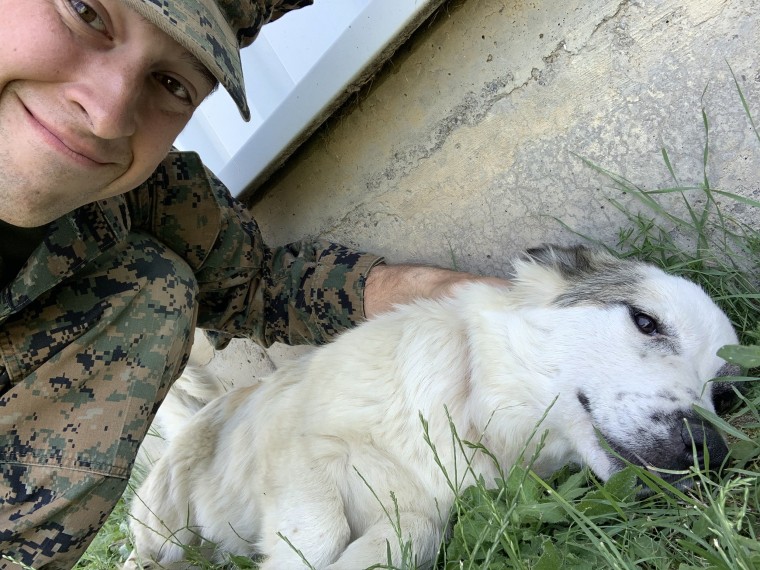
“I just fell in love with her right away,” he told TODAY.
Brady bathed, fed and vaccinated the pup and named her Marshmallow. But a week later, she gave him a scare when she disappeared from the base for a few days.
“I guess she liked where she was on the base so she came back to us, thank God,” he said. “She was completely filthy — covered in mud — which was probably foreshadowing because later on, I found out she just loved to get dirty whenever she possibly could.”
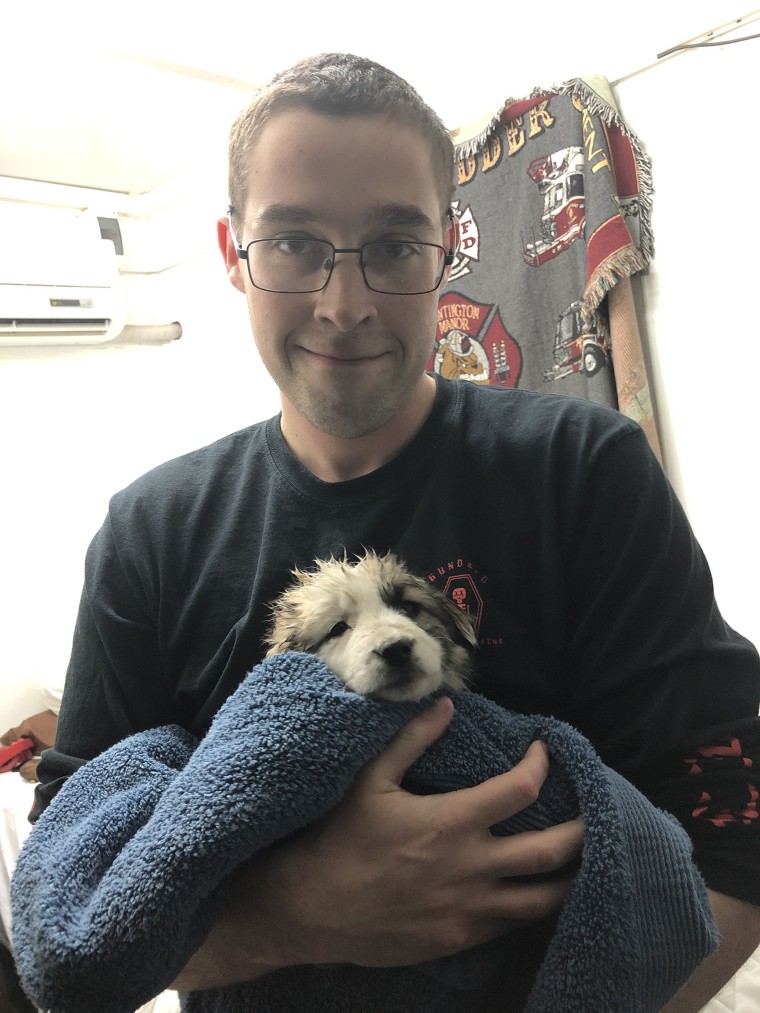
Despite frequently having to bathe Marshmallow, Brady knew he wanted to permanently adopt the dog and get her back home to Long Island, New York. When the coronavirus pandemic forced members of the military to isolate on base, he said Marshmallow and a few other strays helped boost troop morale with their antics and cuddles.
The pandemic also complicated the logistics of transporting his dog back to the United States.
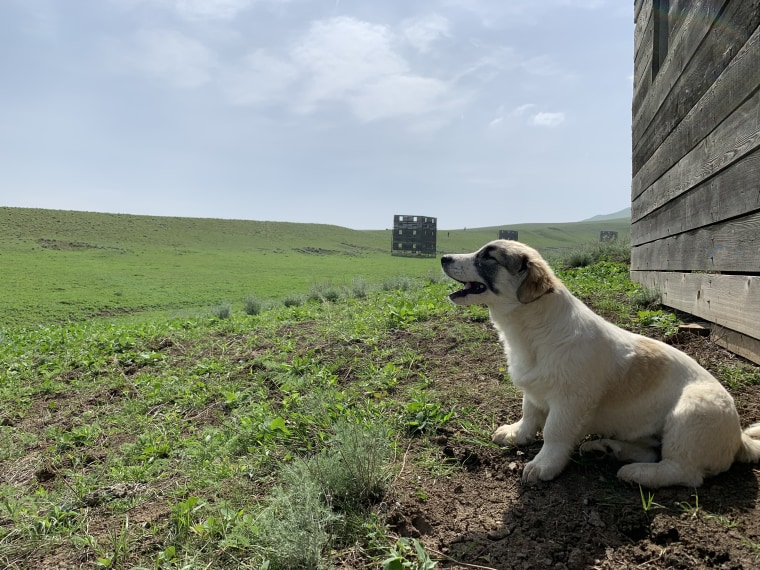
Brady contacted SPCA International, which helps American service members bring home pets they meet while serving anywhere in the world through the program Operation Baghdad Pups: Worldwide. The nonprofit helped him navigate red tape, and in September, at the end of Brady’s deployment, Marshmallow was cleared to board his plane.
Brady faced a final, stressful hurdle the day of their flights, when airport officials said the dog was ineligible to fly because her crate didn’t have a certain type of plastic screw. Frantic, he searched high and low for screws and called Lori Kalef, program director at SPCA International, who worked behind the scenes to get Marshmallow on the plane.
He had to trust the nonprofit and leave his dog and head to the security checkpoint while Kalef placed calls on his behalf. Ultimately, the airport approved using zip ties instead of screws.
“I got a phone call from Lori saying, ‘She’s on the plane; she’s on the plane,’” he said. “As uncharacteristic as it might sound, we both broke down and started to cry a little bit because it was so stressful. After all these months of uncertainty and everything, finally just seeing her board the plane, I couldn’t explain the kind of feeling that I had. It was just the happiest feeling.”
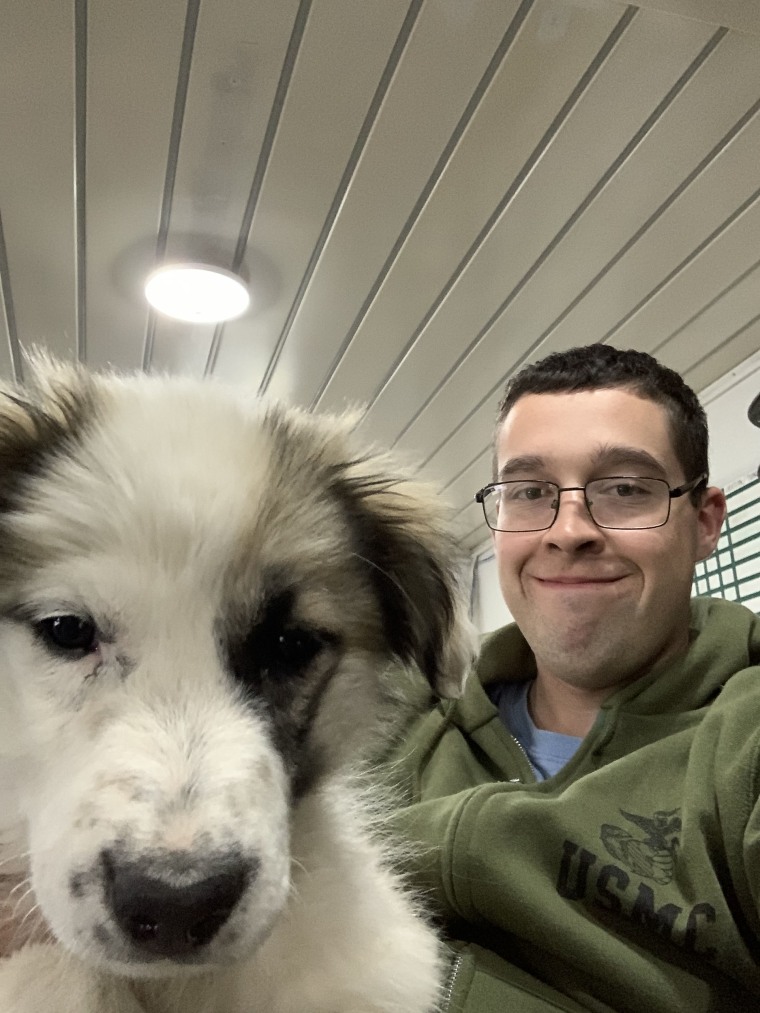
Because Brady had to quarantine on a military base in North Carolina for two weeks as a pandemic precaution, Marshmallow lived with his parents until they were finally reunited.
Marshmallow was so overjoyed to see him that she popped the stitches from her spay surgery, but soon recovered. She’s adjusted nicely to life in the U.S. and has claimed Brady’s couch for her own. She gets along with his chow chow, Bear, and loves playing outside.
The only real challenge involved food. When Brady couldn’t leave the base to buy kibble for Marshmallow due to the coronavirus pandemic, he shared his food with her.
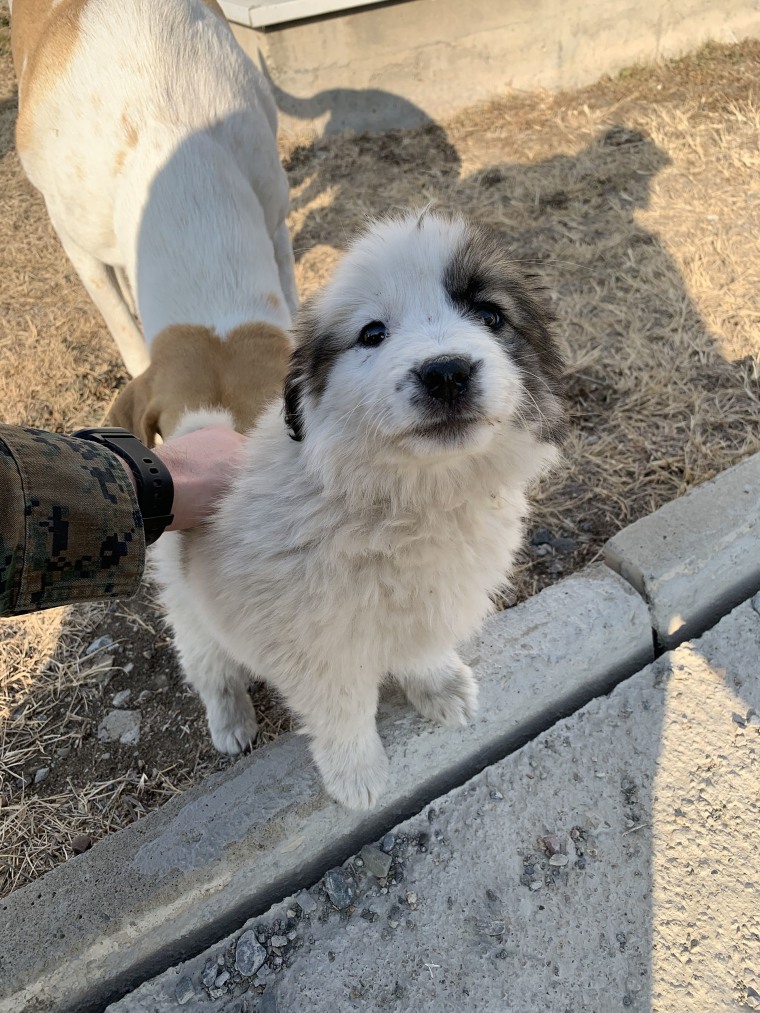
“When it was chow time for us, it was chow time for her,” he said. “She ate the same things as us.”
After pining briefly for bacon, the dog adjusted and now wolfs down her meals. Brady’s dad also sneaks her table scraps, which she appreciates.
“She just seems very happy all the time,” Brady said. “SPCA International is an amazing organization with amazing people.”
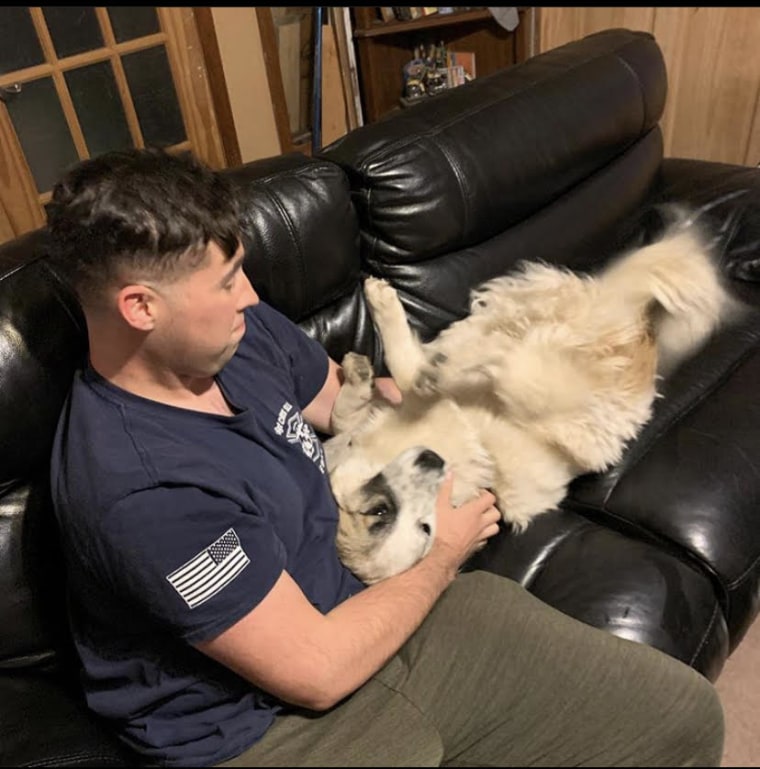
Meredith Ayan, executive director of SPCA International, said the nonprofit has helped more than 1,000 service members like Brady reunite with pets they’ve met while serving overseas, including dogs, cats and even a donkey named Smoke.
Additionally, the nonprofit has helped more than 2,000 military families through the program Operation Military Pets by helping cover pet relocation expenses for active-duty service members who deploy or transfer to another base.
Ayan said SPCA International is deeply committed to helping troops keep their pets.
“It’s so important to us because, while none of us civilians can understand what these servicemen and women are going through, I think we can understand on some level that they’re away from their family; they’re in incredibly stressful situations,” she told TODAY. “They are living, basically, on a knife’s edge at all times. And these animals bring them so much comfort and joy and a little bit of a respite from that. … It’s saving animals, and it’s also an honor for us to be able to do this for the people defending our country.”
CORRECTION (Dec. 15, 2020, 9:55 a.m.): An earlier version of this article misspelled the name of the program director at SPCA International. It is Lori Kalef, not Lori Kales.
